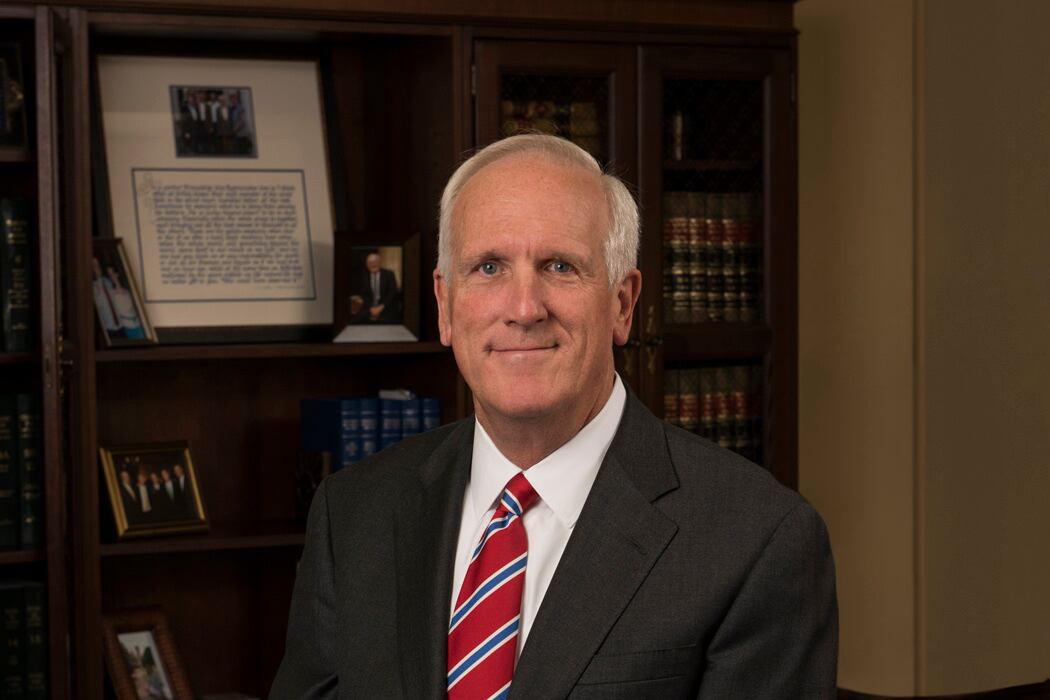Tennessee is asking the judge who overturned its school voucher law to allow the program rollout to proceed pending an appeal.
Attorney General Herbert Slatery III filed a motion late Tuesday night asking Davidson County Chancellor Anne C. Martin to pause her Monday order halting the enactment of the education savings account law.
Martin has scheduled a hearing on the request for Thursday.
The motion was filed hours after Gov. Bill Lee urged eligible families in Memphis and Nashville to apply before Thursday’s deadline, prompting concerns from constitutional scholars that the governor was defying the court’s order.
“We’re still encouraging parents to apply to the program because we believe that it will continue to move forward,” Lee said Tuesday of the education savings accounts, which would give an average of $7,100 annually to help families pay for private school tuition or other private education services.
Bob Cooper, law director for Metropolitan Nashville government and a former state attorney general, said he contacted Slatery’s office soon after about “what the state needs to do to comply with the court’s injunction.”
“The governor’s statement is concerning,” said Cooper, who argued the case before Martin on behalf of Nashville and Shelby County governments and their lawsuit challenging the law.
The state’s application website was live as of Wednesday and included no information about the judge striking down the law. An education department spokeswoman was not aware whether legal guidelines had been shared with staff overseeing the voucher program in light of the judge’s ruling.
The governor’s press secretary, Gillum Ferguson, said the administration believes it is “in full compliance” with the judge’s order.
“The Department of Education has not and will not be taking any action to process, administer, review applications, or further implement the program until this matter is resolved in the courts,” Ferguson said.
But Senate Minority Leader Jeff Yarbro said the governor’s statements on Tuesday violate the spirit of the order.
“Right now, the state does not have the legal authority to either encourage or accept voucher applications,” said Yarbro, a Nashville Democrat. “It’s not OK for the governor, whose obligation is to faithfully execute the law, to act in a manner that’s contrary with a court order.”
Martin gave the state permission to appeal her decision to a higher court, and Slatery’s office filed paperwork Wednesday asking the Tennessee Court of Appeals to consider the case.
In its motion asking the judge to pause her order, the state said halting the program now “will result in irreparable injury” to students and parents who have begun the application process and face “the prospect of returning to underperforming schools.”
“Schools who have made hiring decisions in anticipation of enrollment of children via the ESA Program may find it necessary to terminate those teachers,” the motion added. “Those same schools have made investments in infrastructure, administration, and planning that cannot be undone at this date.”
As of Wednesday, the state had received 1,825 applications for 2,648 students, but that number included incomplete applications and 318 denials, said Chelsea Crawford, spokeswoman for the education department. A week ago, data provided to Chalkbeat showed fewer than 300 completed applications were on track for approval for 5,000 spots in the program, while 189 had been denied. Crawford did not provide a similar breakdown on Wednesday.
The judge ruled that the law, which Lee championed and signed last year, violated the state constitution’s “home rule” provision because it applied only to students in Tennessee’s two largest districts, where numerous government bodies had passed resolutions opposing the program.
The state argued that “substantive education policy” is not covered by that provision, nor are school districts.








